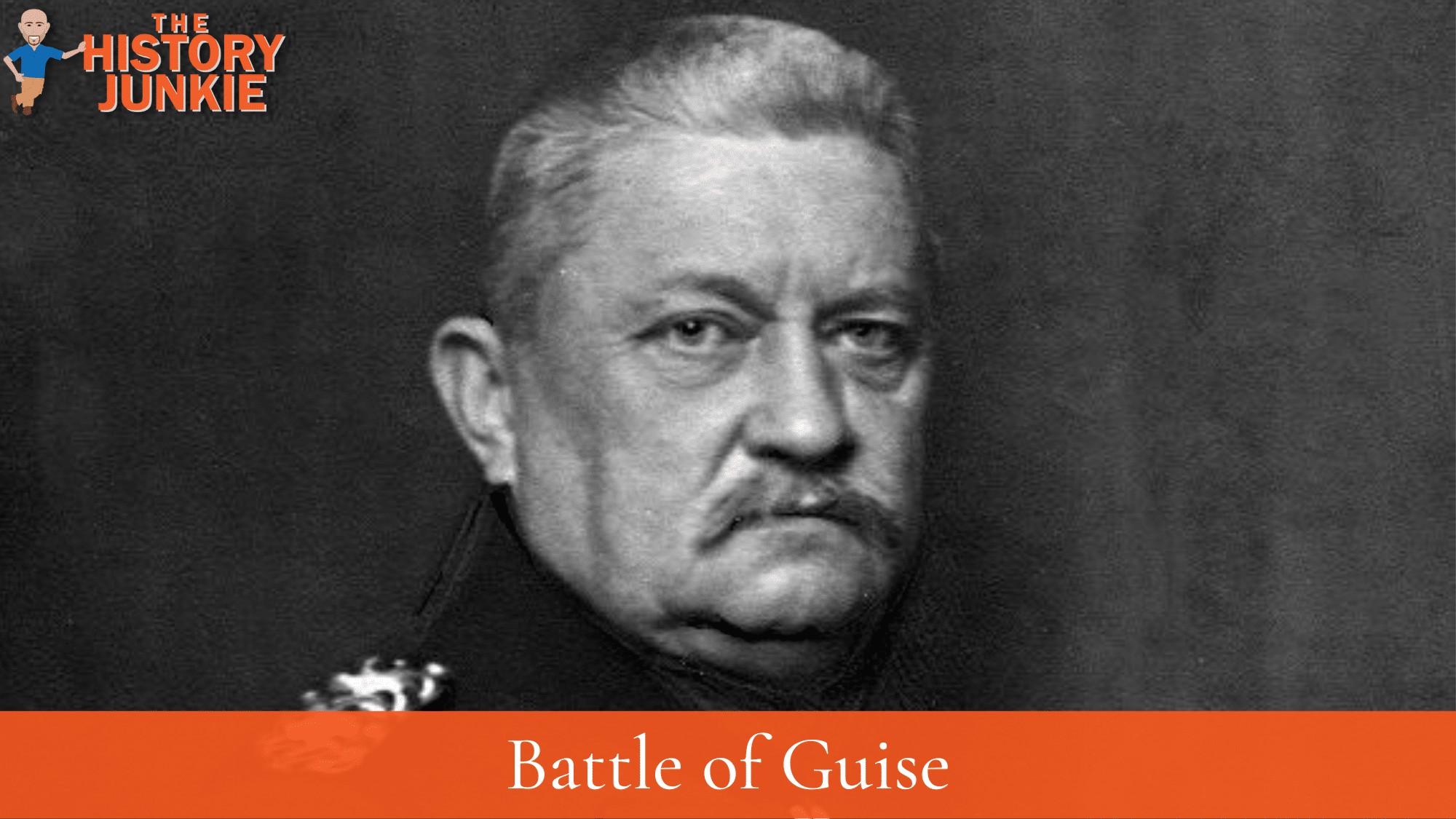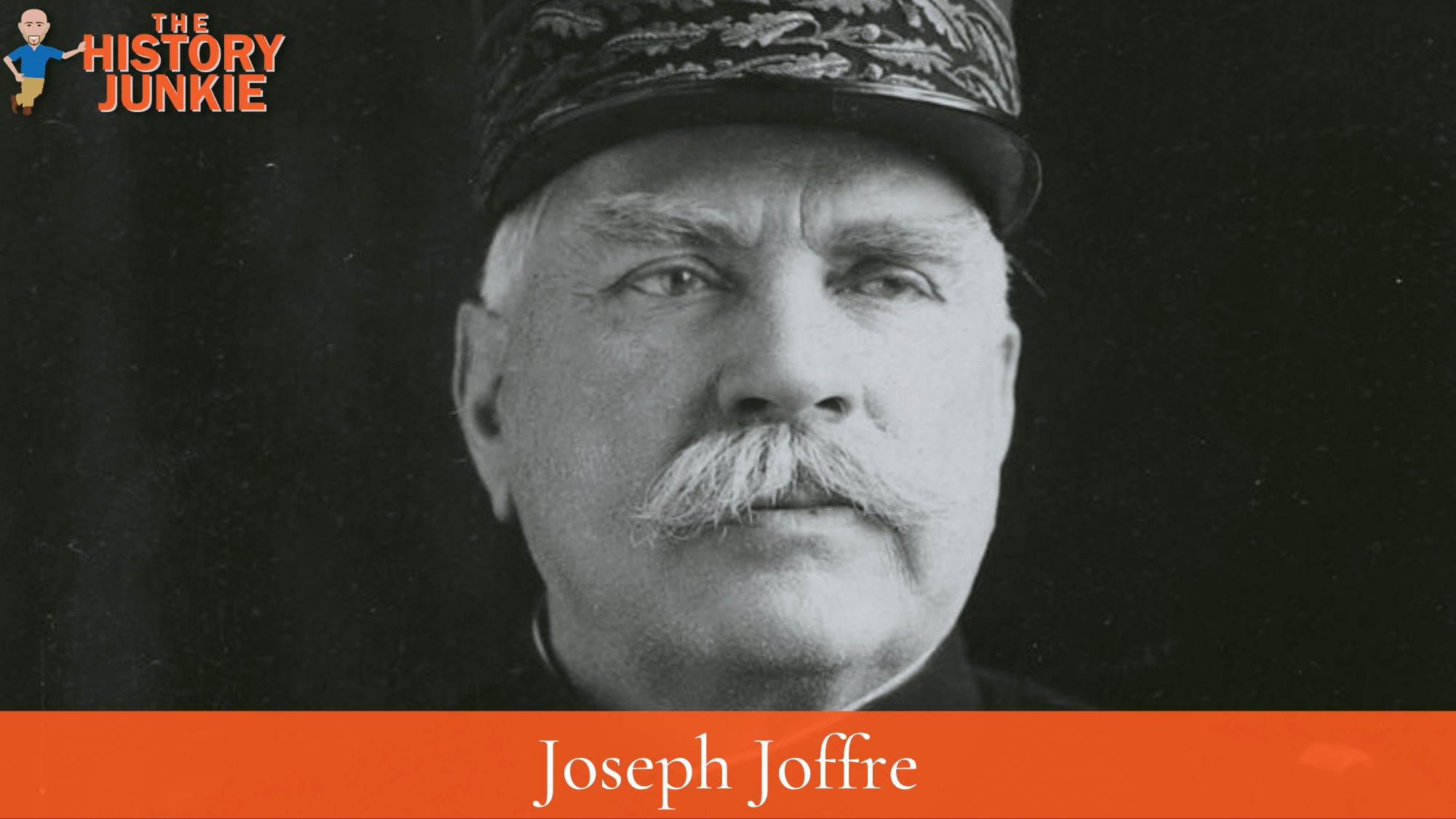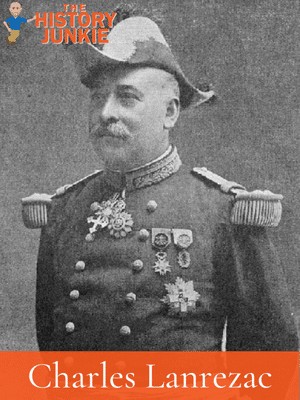Also referred to as the Battle of Guise-St. Quentin, the Battle of Guise was launched by French General Charles Lanrezac's Fifth Army on August 29, 1914, in the wake of its dismal failure at the Battle of Charleroi.

Pursued by Karl von Bulow's victorious Second Army, Lanrezac's force was facing north in the face of their German enemy on August 27. With the British under Sir John French similarly retreating to their left (in the aftermath of the Battles of Mons and Le Cateau), a clear gap existed to the French right.
French Commander-in-Chief consequently Joseph Joffre resolved to establish a counteroffensive Allied line along the River Aisne; however, Lanrezac, France's pre-eminent pre-war military strategist, initially refused Joffre's instruction to advance northwest between Guise and St. Quentin.

It required a personal visit by the formidable (and forceful) Joffre to convince Lanrezac that advancing northwest would provide the French with sufficient time to install the new French Sixth Army at the northern extremity of the Western Front.
Douglas Haig - at that time commanding the BEF's I Corps - initially offered support to the French but was quickly countermanded by Sir John French.
Thus, on August 28, 1914, Lanrezac brought his forces into position for the advance northwest. Unfortunately, his plans fell into German hands, with the consequence that von Bulow awaited Lanrezac's advance the following day with his Second Army ready to strike.

In the event, von Bulow's counterattack obliged the left of Lanrezac's force to retreat across the Oise, where it subsequently joined to protect the right at Guise. Despite this setback, the French succeeded in making progress and took possession of Guise on the evening of August 29, 1914.
In spite of his success in capturing Guise, Lanrezac's position was precarious and liable to fall under the weight of heavy German assault. Joffre, therefore, authorized a French withdrawal later the same evening; it was put into effect the next morning, with Lanrezac taking care to destroy the Oise bridges as he went.
The battle was regarded as a simple defeat by the public at large in France despite evidence to the contrary.
Although it contributed to a further deterioration of Lanrezac's already declining reputation (he was ultimately dismissed), it undoubtedly served to delay von Bulow's advance, time placed to effective use by Joffre as he patched up the rest of the French line.
